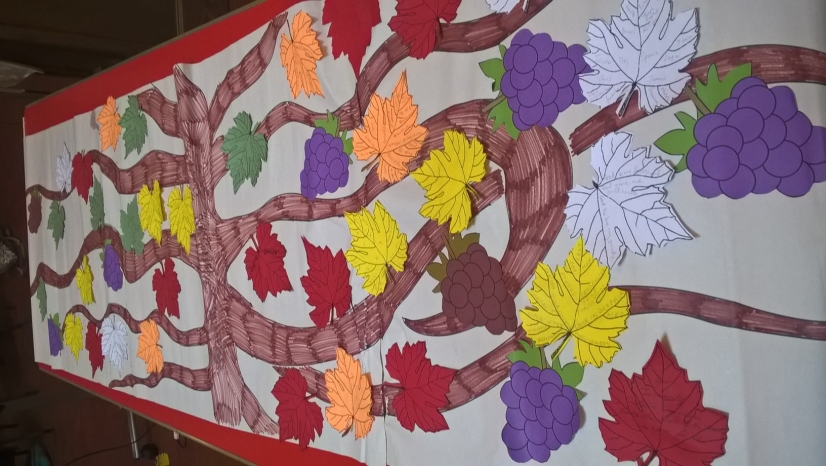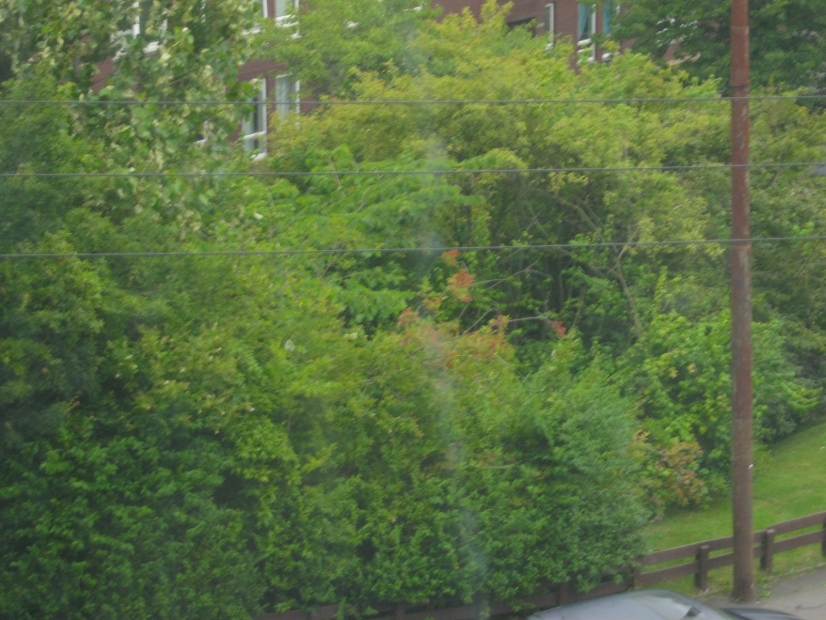Life has been very busy for the last several months, and I have been growing increasingly tired and tetchy (I'm allowed to say this, even if other people are too polite to comment). So it was a bit of a "hmm" moment this morning when the choir sang the "gathering song" (introit by any other name), and in my mind I was transported back to the first time I crossed the threshold of The Gathering Place, when I felt a deep sense of "home-coming". It was good to reminded of that, reassuring, affirming and, I believe anyway, of God.
A Skinny Fairtrade Latte in the Food Court of Life - Page 306
-
Hmmmm....
-
Golden Moments
This evening I will joining many others to share in celebration of a Golden Wedding.
Fifty years married is an incredible achievement, and it is a great privilege to be invited to be there.
Way back in 2009, I first got to know this couple when I came to visit the Gathering Place for either for a "squint" or to "preach with a view/as sole nominee" (memory fail; but probably the latter). After morning worship there was spare time before my flight back to East Midlands, and this couple kindly took me home for a meal and one of them showed me round the Botanic Gardens, including "behind the scenes," as they volunteer there.
Since then, I have enjoyed their generosity and friendship - and I have probably driven them to despair at times - as well as valuing their tireless service to the church.
They have made it very clear that there are to be no gifts this evening, and I, being a girlie swat, will do as I'm told. Truth is, the greater gift is what they give to others, modelling commitment and stability, hospitality, humour and, above all, love, in a world where all of these sometimes seem to be in short supply.
God bless you B&K (and thank you for the chicken dinner you rustled up for me at zero notice all those years ago!) -
The Autumn Leaves are Turning...
Not a good photo, taken through glass, from too far away, with too simple a camera, and a deal of 'shake'... but you can see the first red-gold leaves on the trees I see from my window each morning.
A little earlier than usual this year, and before the subtle change in the quality of the light that heralds autumn, but nonetheless it thrills my heart to see them. Another autumn will soon begin, and I will be here to see it... and that is good news.
-
Worth Repeating?
Oh dear. Spectacular memory fail! I just sat down to begin work on a new sermon series and then, oops, realised that just four years ago I had done one on the same book, though arguably with some slightly different angles from those I'm thinking about this time. It's just a bit embarassing to have zero recollection of it!
Ah well, this week's is a fairly general overview, so hopefully it will be different enough from last time that those who do recall what I said won't feel too cheated!
As for the rest of the series - well, we'll just have to wait and see!
-
The Vine...

Here is our prayer/dedication grapevine from yesterday's service. It was much admired by folk who came to our joint evening service.
I think it symbolises a lot more than 'just' our prayers.
It symbolises our sense of community, that in our diversity we hold together as a (broadly) reconciled unity.
It symbolises something of the story of our life together, as we have experimented with different approaches to 'all age worship' in order to find a model that works for us, for now.
It symbolises something of the temporality of all things - this poster-prayer will be on the wall for a few weeks, maybe a few months, and then will be discarded.
It acts, in some small measure, as a missional tool, as anyone entering our premises will see it, and have the opportunity to read the words, to see the squiggles and symbols, and discover something of how our faith and life intertwine
I think for me, as we near the seventh anniversary of my arrival in Glasgow, it symbolises much of what I want to celebrate about this church and my part within it.
Jesus said, "I AM the vine... abide in me... "
Make your home in me...
Rest in me...
Stick at it with me...
Jesus said, "you are the branches..."
When you are strong and when you are weak
When life is easy and when it is tough
When you rejoice and when you weep
When it is a season of fruit-bearing
And when it is time for the pain of pruning
Jesus, true and living vine
Source of vitality and energy
Refresh, renew and reinvigorate us all
That, in whatever season we find ourselves
We may bear fruit worthy of you
Amen.
Photo (c) Brian Muir
